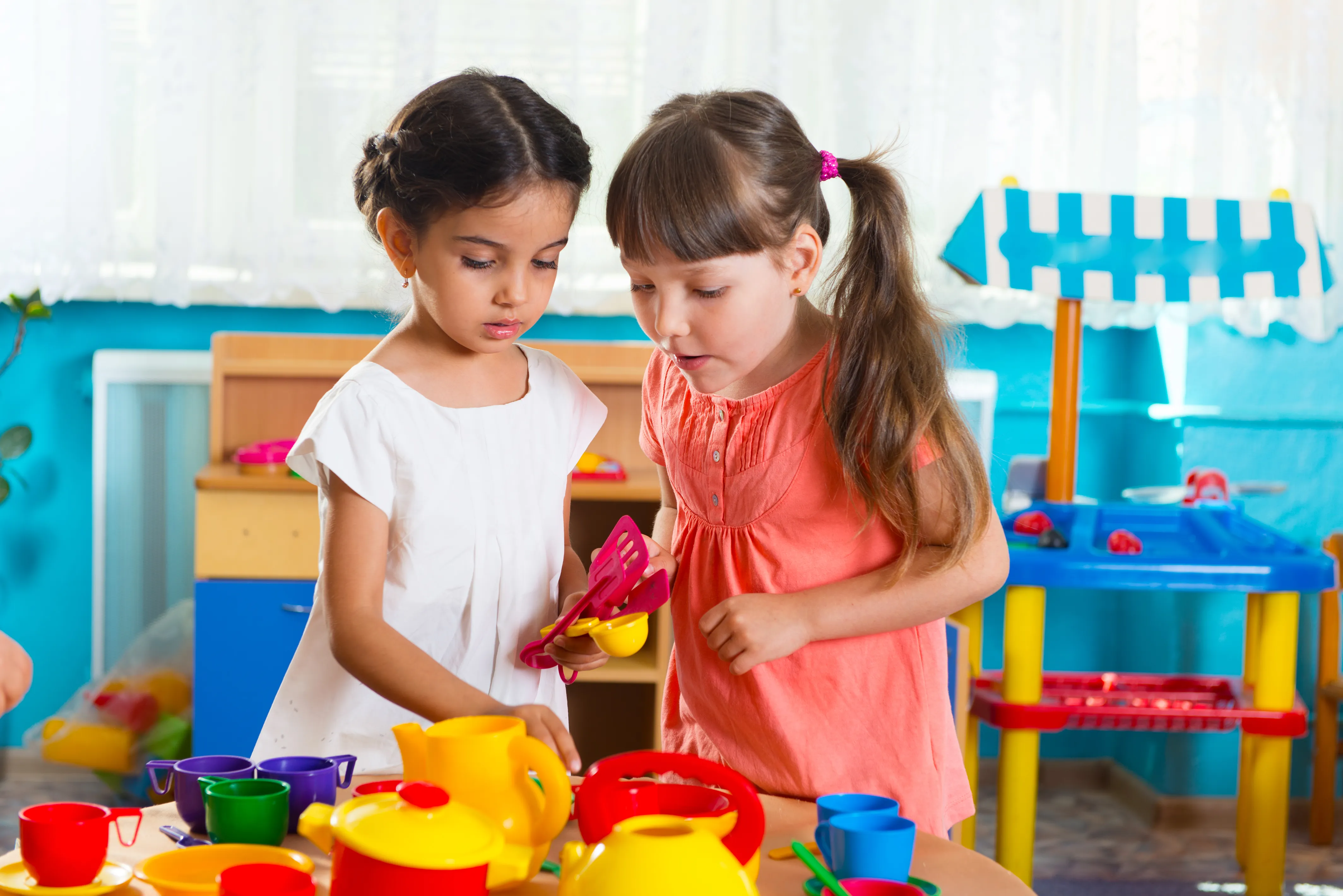Preschool is more than nap time. It’s the foundation of your child’s educational journey, shaping their future in ways you can’t imagine. It’s here that the seeds of curiosity and resilience are planted. Start a search today to find preschools.
This early educational setting nurtures a child’s cognitive and emotional development and plays a pivotal role in building social skills. It’s where little minds begin to explore, learn, and grow. Choosing the right preschool is a big decision.
 spass / Shutterstock
spass / ShutterstockThe Crucial Role of Preschool in Child Development
Preschool is a platform where children develop essential life skills.1 Through structured play, interactive lessons, and social interaction, preschoolers learn how to communicate, cooperate, and solve problems. These are the years when children absorb information like sponges, making it the ideal time to introduce concepts of numbers, letters, and shapes. Moreover, preschool education lays the groundwork for lifelong learning habits, fostering curiosity and enthusiasm for knowledge.
The emotional and social development facilitated by a preschool setting is unparalleled. Children learn to navigate friendships, share with peers, and express their feelings in a supportive environment. This early exposure to social situations prepares them for the structured setting of primary school and beyond. A quality preschool can significantly influence a child’s ability to adapt, participate, and thrive in future educational settings.
How To Choose the Right Preschool
Selecting the right preschool for your child is a process that requires careful consideration and research. It’s essential to look beyond the colourful classrooms and playgrounds to understand the philosophy and values of the preschool. A children’s centre preschool that aligns with your educational beliefs and your child’s needs can make all the difference. Consider the curriculum and teaching methods; they should encourage creativity, critical thinking, and social interaction.
The importance of a nurturing and qualified staff cannot be overstated. Educators should be experienced, passionate about teaching, and skilled in early childhood development. Visit potential preschools to observe the teacher-student interaction, the classroom environment, and how discipline is managed. It’s also wise to talk to other parents about their experiences and insights.
Safety and location are practical considerations that can’t be ignored. The preschool should adhere to the highest safety standards, with secure premises and a clean, well-maintained environment. Proximity to home or work can ease the logistics of drop-off and pick-up, reducing stress for both you and your child.
Lastly, evaluate the preschool’s communication and involvement with parents. A preschool that values parent-teacher collaboration and keeps you informed about your child’s progress is invaluable. This partnership is crucial in providing a consistent learning and development environment for your child.
The Benefits of Preschool
Many preschool centres are known for their emphasis on play-based learning, which is crucial for young learners. Play is not merely a pastime; it’s an essential part of learning that helps children understand the world around them, develop language skills, and build emotional strength. These centres also offer a range of activities that stimulate physical, cognitive, and creative development, preparing children for the challenges of primary school.
Moreover, the community aspect of a preschool cannot be overlooked. These centres often serve as a hub for families, offering access or directing parents to parenting classes, support groups, and health services. This creates a supportive network for parents and children alike, fostering a sense of belonging and community involvement.
The Impact of Preschool on Future Academic Achievement
Research shows that children who attend preschool are better prepared for the challenges of primary school and beyond.2 These early learners tend to have higher literacy and numeracy skills, a direct outcome of the preschool curriculum. This early head start is crucial, setting a strong foundation for academic success and a lifelong love of learning.
Moreover, the benefits of preschool extend beyond academic achievement. Children who have experienced preschool education demonstrate better social skills, greater emotional resilience, and an enhanced ability to adapt to new environments. These qualities are invaluable, contributing to a smoother transition to primary school and improved educational outcomes in the long term.
Start Your Search Today
The importance of preschool in a child’s early development is undeniable. It provides the building blocks for academic success, emotional well-being, and social growth. Choosing the right preschool is a crucial decision that can influence your child’s future. By considering factors like the educational philosophy, staff qualifications, safety, location, and parental involvement, you can select a preschool that meets your child’s needs and aligns with your family’s values. Remember, the right preschool can set your child on a path of curiosity, learning, and success that lasts a lifetime.